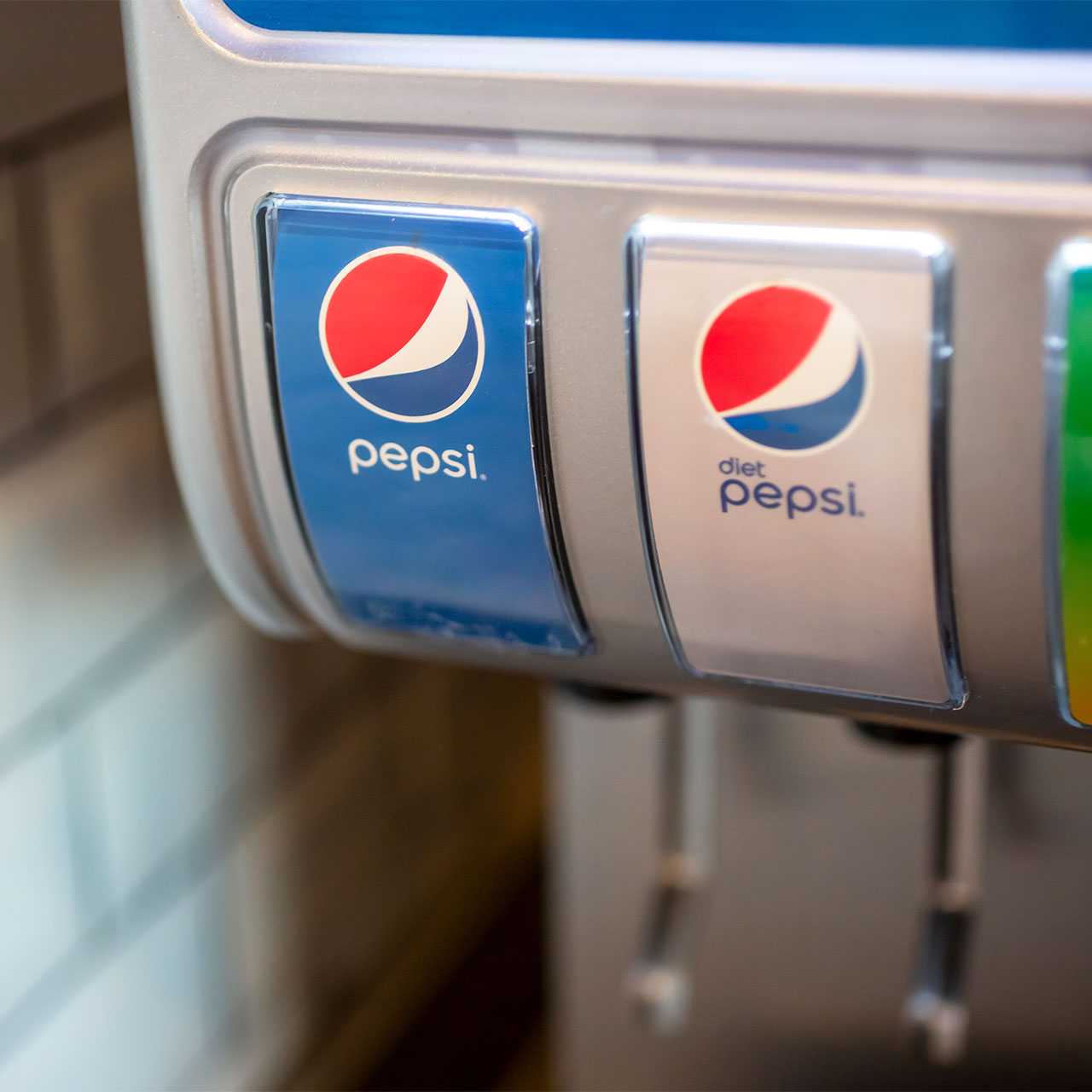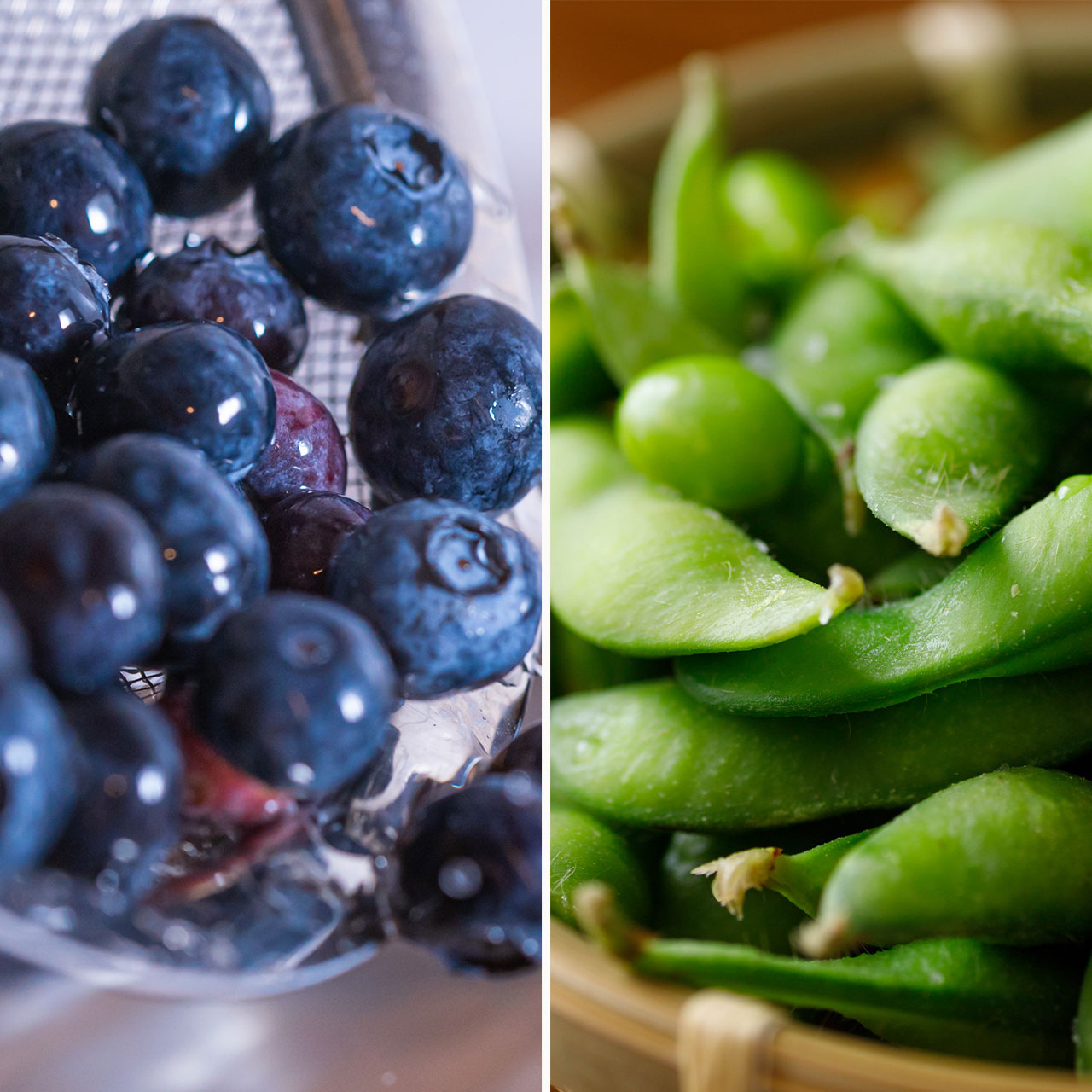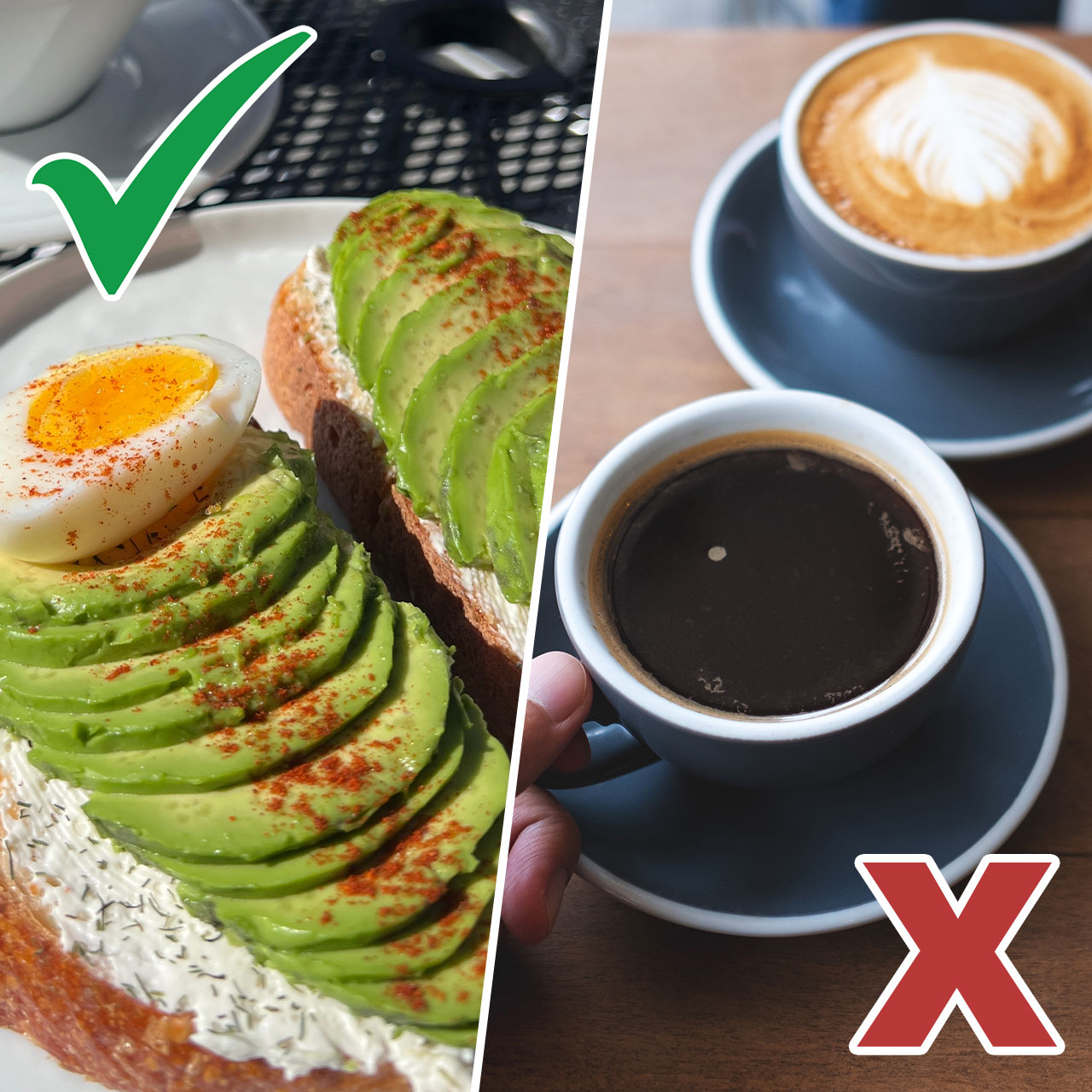Fermented foods have been a staple in various cultures for centuries, known for their unique flavors and health benefits. These foods undergo a natural process where beneficial bacteria, yeast, and other microorganisms break down sugars and starches, resulting in a product rich in probiotics. These probiotics, or “good” bacteria, play a crucial role in supporting gut health and improving digestion.
We spoke with Sarah Anderson, NP, Lisa Richards, nutritionist at The Candida Diet, Samantha Cassetty, MS, RD, and Michelle Saari, MSc, RD, at EHealth project to learn about nine fermented foods you should be eating if you want a healthy gut and digestive system. They revealed that some of the best options are kefir, kimchi, fermented pickles, and more. Read on to discover all nine!

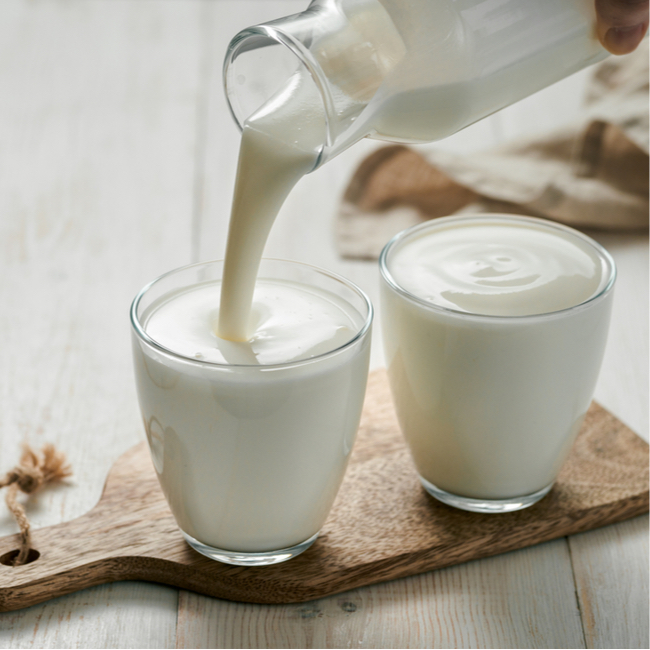
1. Kefir
Kefir is a fantastic gut-healthy food that can work wonders for bloating! Packed with probiotics, those friendly bacteria, kefir can help restore balance in your gut microbiome. This balance is crucial for proper digestion and can significantly reduce bloating.
"One study found that eating six servings of fermented foods [like kefir] per day led to better microbiome diversity and reduced markers of inflammation,” explains Cassetty. "These factors can lower your risk of numerous conditions, including autoimmune conditions, type 2 diabetes, heart disease, and mood disorders like depression and anxiety."
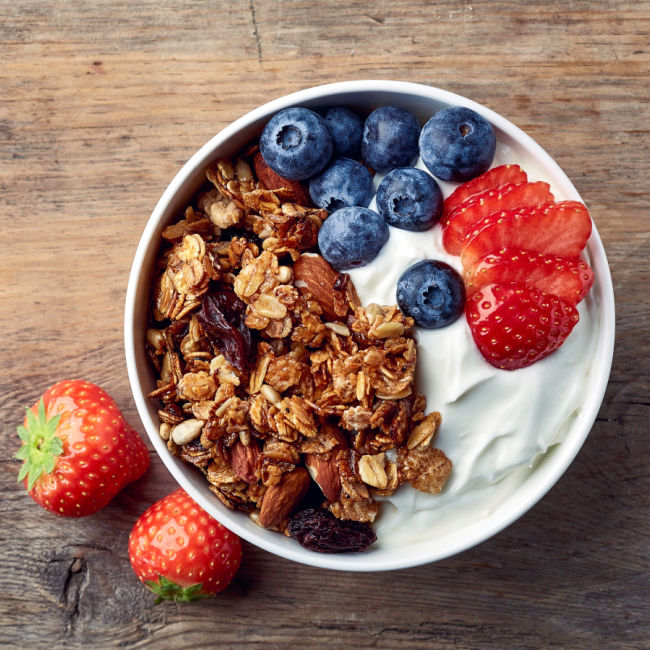
2. Greek Yogurt
The probiotics in Greek yogurt work to improve the overall health of your digestive system, aiding in the breakdown of food and reducing the chances of bloating caused by undigested food particles. Additionally, Greek yogurt is rich in protein, which supports muscle health and can contribute to a feeling of fullness, helping to prevent overeating and further bloating.
According to Richards, eating it regularly "replenishes your gut microbiome with healthy bacteria." That healthy bacteria is "beneficial for weight, among many other health benefits." She points out that "by keeping this area of the body in balance and preventing gut dysbiosis, you improve your overall health."
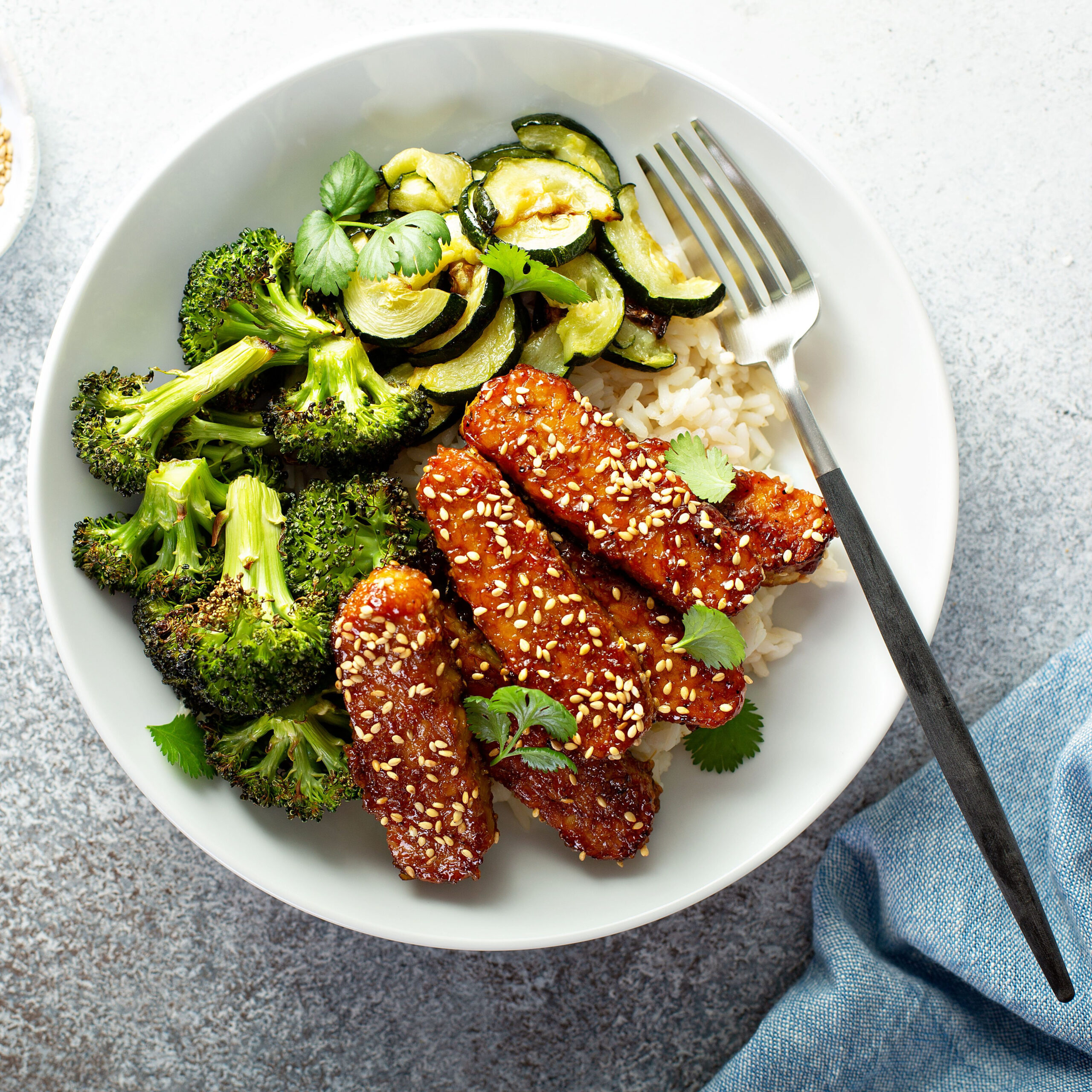
3. Natto or Tempeh
Natto has a unique enzyme called nattokinase that helps break down proteins, making digestion easier and reducing gas. Tempeh is also great because the fermentation process makes its proteins more digestible, which means less work for your gut and less bloating.
“Natto is a natural blood thinner,” Anderson adds.
Create a simple natto bowl by combining cooked rice or quinoa with a serving of natto. Top it with your favorite vegetables, like sliced cucumbers, avocado, shredded carrots, and chopped green onions. Drizzle with a little soy sauce or tamari for flavor.
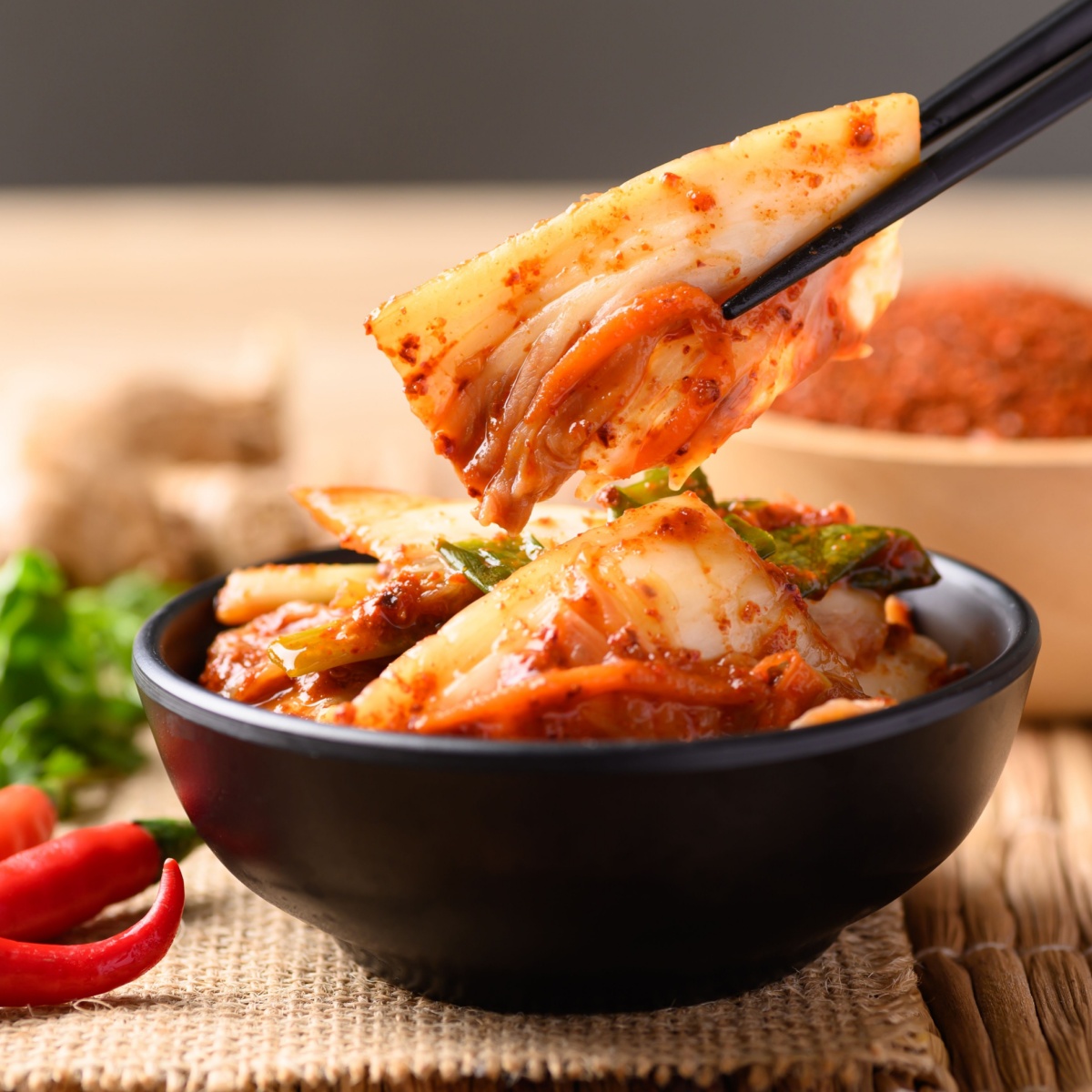
4. Kimchi
Kimchi is a fermented food made with cabbage, radishes, and a variety of spices. During the fermentation process, beneficial bacteria like Lactobacillus are produced, turning kimchi into a rich source of probiotics. These probiotics help maintain a healthy balance of gut bacteria, aiding in digestion and reducing bloating.
“The process of fermentation requires many good bacteria, and they are retained in the food once the process has ended,” she explains.

5. Sauerkraut
Fermented foods like sauerkraut contain enzymes that assist in breaking down complex carbohydrates, reducing the production of gas during digestion. This can lead to less bloating and improved digestive comfort.
“Fermented chopped cabbage lowers blood pressure and protects blood vessels,” notes Anderson.

6. Kombucha
When you drink kombucha, you're essentially introducing these beneficial microbes into your gut, which helps to maintain a healthy balance of bacteria. This balance is crucial for smooth digestion, absorbing nutrients effectively, and even supporting your immune system.
“In addition to [probiotics and polyphenol antioxidants] and the impact of eating and drinking fermented foods on your gut microbes, kombucha has antibiotic and anti-inflammatory properties,” explains Cassetty.

7. Miso
Miso contains antioxidants and bioactive compounds that have anti-inflammatory properties. These compounds help reduce inflammation in the gut, which is often associated with bloating and digestive issues.
"Miso soup is considered good for gut health due to its key ingredient, miso, which is a fermented soybean paste," she explains. "Miso is rich in live enzymes that aid in breaking down food, easing the burden on the digestive system. Moreover, miso contains prebiotics, which are non-digestible fibers that nourish beneficial gut bacteria."
Richards points out that "miso soup's gentle warmth and easily digestible nature make it a soothing choice for those with sensitive digestive systems, further contributing to gut comfort and overall well-being."
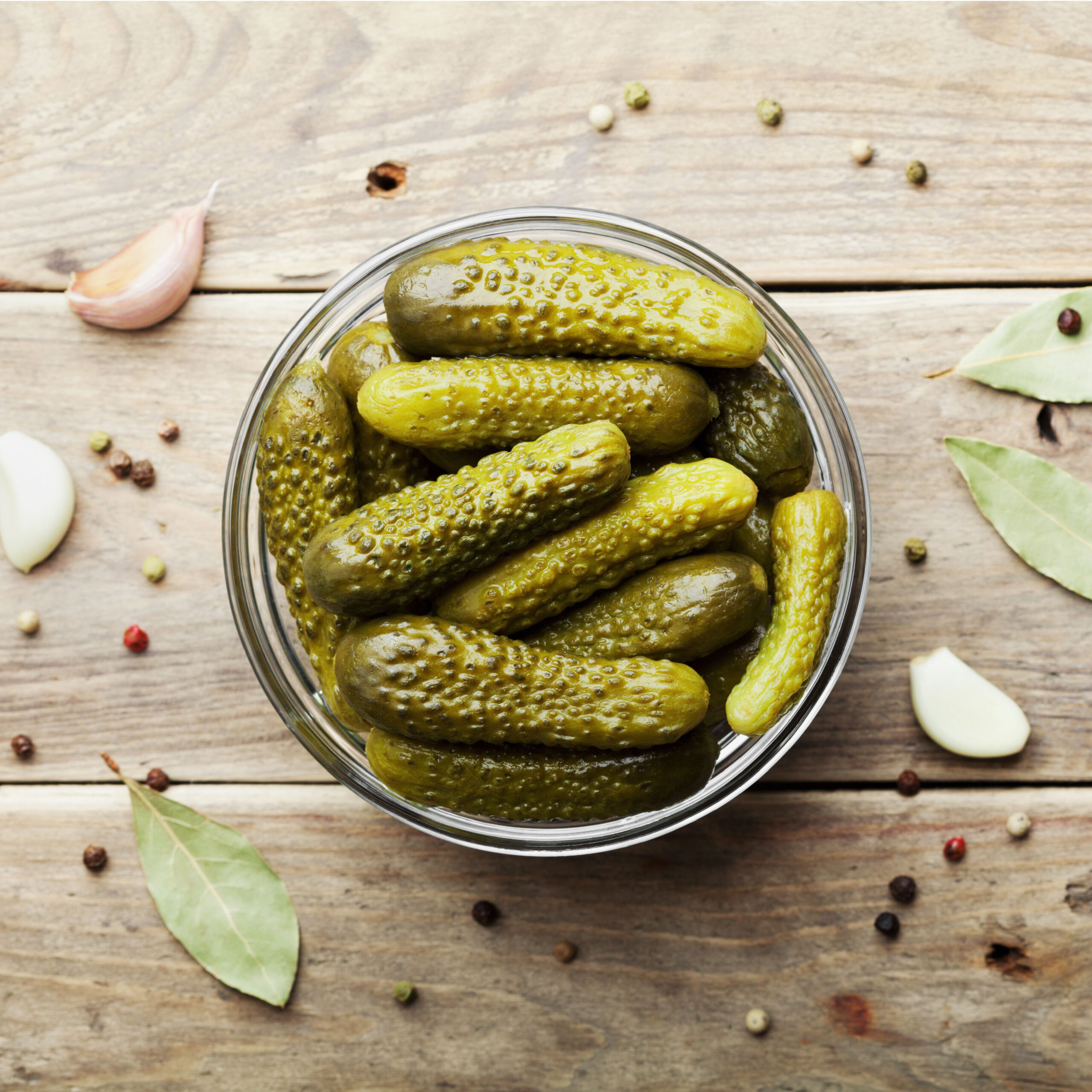
8. Pickles
Craving something salty, tangy, and crunchy? Look no further than pickles, which are a delicious source of probiotics. They make a great snack, sandwich ingredient, or even protein bowl add-in. The possibilities are endless!
In addition to the fact that the fermentation process used to make pickles produces probiotics, this food is also low in calories and fat, so it's a perfect food for anyone looking to shed some points as they nourish their gut.
"Naturally fermented pickles are a low-calorie snack rich in probiotics. They also contain vitamin K, which is important for blood clotting. But it's important to watch the sodium content in pickles, as high sodium intake can be detrimental to health," Saari notes. Got it!
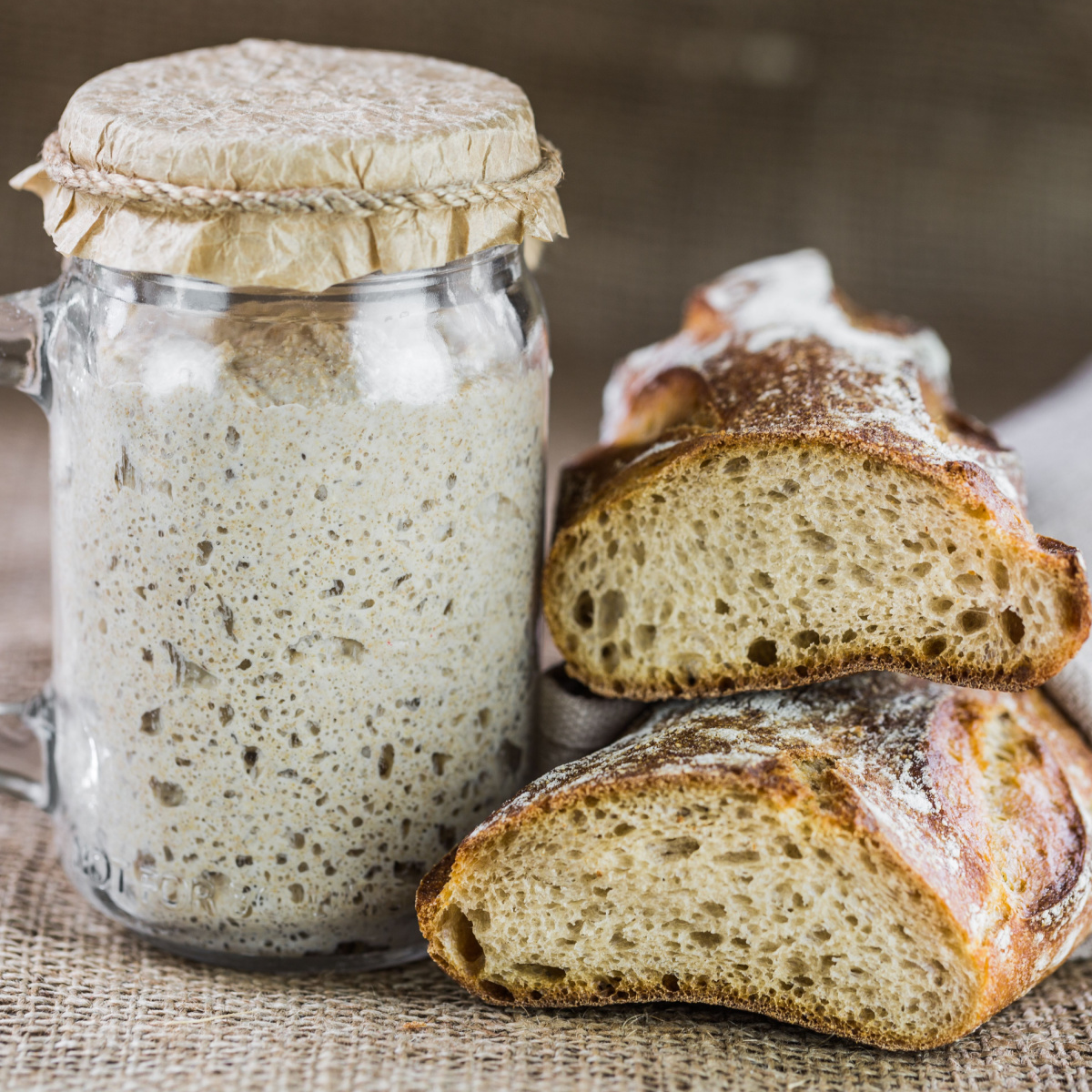
9. Sourdough Bread
Unlike some conventional breads that might contribute to weight gain due to refined flours and sugars, sourdough is fermented with a natural sourdough starter, typically consisting of flour and water.
"The natural fermentation process in sourdough bread breaks down complex carbohydrates into simpler sugars, resulting in slower digestion and a more gradual release of glucose into the bloodstream," Richards says.
"This helps stabilize blood sugar levels, preventing spikes and crashes that can trigger cravings and overeating." She also adds that sourdough bread has "fewer additives and preservatives compared to some commercially produced bread, making it a more wholesome and nutrient-dense option."
"Sourdough bread typically has a denser texture and more substantial flavor, which can promote a feeling of satisfaction and fullness with smaller portions," Richards reveals.
"Its complex flavor profile also makes it a satisfying and enjoyable choice, potentially reducing the desire for additional high-calorie snacks or spreads."


